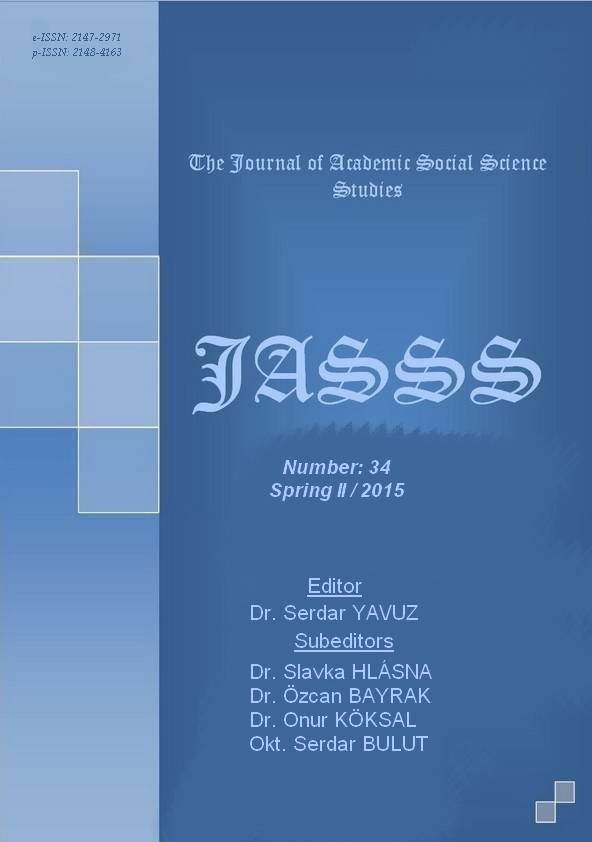Author :
Abstract
Sorgulamak zihnin en önemli işlevidir. Zihin varlığa sorular sorarak varlığı sorgular. Öyleyse zihnin doğasını daha iyi anlamamız açısından zihnin neden “niçin” sorusunu sorduğunu öğrenmemiz öğretici olacaktır. Bir başka deyişle zihin niçin “niçin” sorusunu sorar? Varlığı enerjik olarak sorgulamak, merakımızı gidermek, değerleri değerlendirmek ve alışkanlıkların iç dünyamız üzerindeki etkilerini kırmak için sorar. Ancak alıştıkça sormayız, hayret etmeyiz. Hayret etmeyen zihin sorgulamaz. Alışkanlıklar tüm yaşamı öyle bir şekilde yönetir ki zihin artık kendini uyanıklık modundan uyku moduna alır. Sorgulamayan zihin kapalı bir zihindir. Kapalı bir zihnin varlığa karşı zihinsel tutumu “ben biliyorum” tutumudur. Ben biliyorum tutumunda zihin için merak, ilgi ve bilmek isteği artık körelmiştir. Buna karşın Açık zihin de ise “ Ben öğreniyorum” zihinsel tutumu hakimdir. Bu zihinsel tutumda öğrenmek bir sürece bağlanmıştır ve temel olan uyanıklık telkin edilmektedir. Birinci zihinsel tutumda kesinlik ve istiğna hakim iken, açık zihinde ise şüphe, yetersizlik, değişimi görebilmek, her an yeni bir şeyler öğrenme merakı ile zihin doludur. Her türlü alışkanlıklar zihnin gerçek doğasını an be an öldürür. Zihni kapalı bir insanın dünyası, sadece alışkanlıklar üzerinde kurulmuş ölü bir dünyadır. Bilindiği gibi alışkanlıklar merak ve ilgiyi öldürür. Merak etmeyen bir zihin ise ölü bir zihindir. Kapalı bir zihin ise asıl doğasından, başlangıç durumdan uzaklaşmış bir zihindir. Açık zihin ihtiyaç duyduğunda alışkanlığı kullanabilen ancak alışkanlığı hiçbir şekilde alışkanlık durumuna getirmeyen dinamik bir zihindir. Açık zihnin amacı olayları ve kendisini olduğu gibi görmektir. Fenomenleri ve zihni izlemek ve olayları olduğu gibi görebilmek kapalı zihinleri açık zihne dönüştürmeye daima yönlendirir.
Keywords
Abstract
Questioning is the most important function of the mind. Mind, asking questions, questions being. Therefore, to understand the nature of the mind finding out why the mind asks “why?” will be helpful. In other words why the mind asks the question “why?” It asks to question being energetically, to satisfy our curiosity, to evaluate the values and to break the routines of the effects of regular practices on our inner world. But we don’t ask or get surprised when we get used to. Mind that doesn’t get surprised, doesn’t question. Regular practices take control of whole life in a way that mind switches itself from awake mode to asleep mode. Mind unquestioning is a closed-mind. Cognitive behaviour of a closed mind against being is “I know” attitude. For the mind set as “I know” interest and willing to know have got blunt. Nonetheless at open mind the attitude “I am learning” is present. In that attitude the learning is engaged to a process and awareness, which is basic, is supported. While certainty and satiety are dominant for the first cognitive attitude, for the open mind curiosity, mind is full of deficiency, realizing the change and interest to learn new things every time. All types of regular practices kill the real nature of the mind. The world of a closed-minded person is a dead world built only on regular practices. As known, the regular practices kill the curiosity and the interest. A mind without curiosity is a dead mind. A closed-mind is a mind deprived from its real nature, its initial condition. Open-mind is a dynamic mind which is capable of using regular practices when needed but which doesn’t turn regular practices into habits in any case. The aim of open-mind is to observe the events and itself as they are. Observing phenomena and mind, and examining the events as they are always forward the closed-minds to the open-mind.





